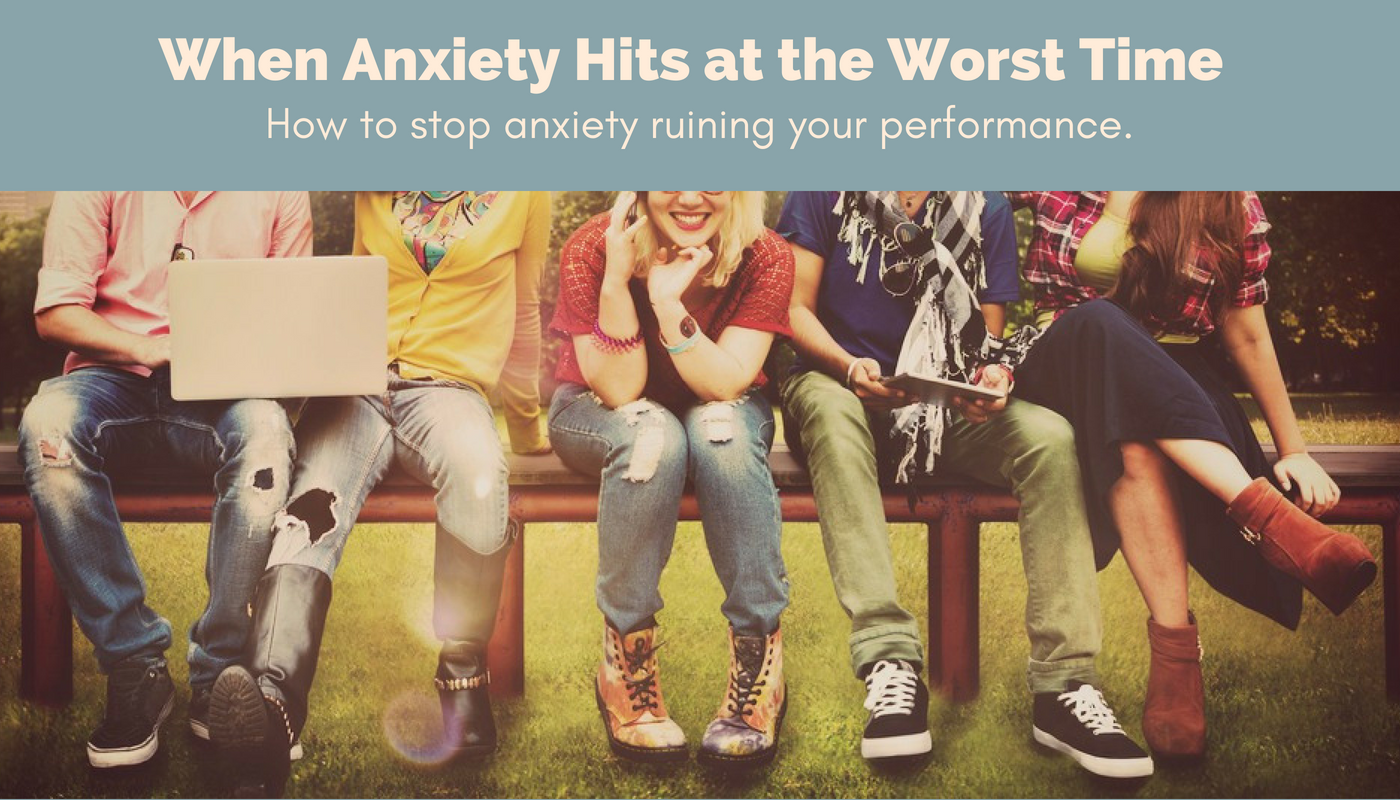Why we make mistakes or stumble during a performance – on the field, on the stage or in front of an audience. Here’s how to stop it happening, so you can make an impression for all the right reasons.
Transcript
- We’ve all had times where we’ve practiced for days or hours to do something, and we know everything we need to know, or we have everything in us to do a brilliant performance because we’ve worked so hard preparing – and then we mess things up. Some people call it ‘choking’, but really, it’s anxiety. It’s happened to all of us, and if it’s happened to you, know that you aren’t alone and that these stories will be gold one day.
- Understanding why this happens can help to minimise the changes of it happening again.
- When your mind starts focusing on what could go wrong, your brain starts to organise your body to deal with the potential threat – and embarrassment, humiliation – all counts as a threat. It does this by surging your body with a neurochemical fuel to get you ready to fight the threat or flee from it. This neurochemical surge is designed to make you stronger, faster, more alert, more powerful – more able to deal with the threat. It’s meant to be a good thing, but if there isn’t a real threat then it can really trip you up.
- When these neurochemicals are surging through you, one of the things that happens is the thinking part of your brain can actually get overwhelmed and it can shut down. This is an instinctive, automatic response designed to keep us safe. If there is an actual danger, your brain (specifically, the amygdala) doesn’t want you to take too much time thinking about the consequences or being too logical or rational. It just wants you to get safe, so it takes over down that thinking part (the pre-frontal cortex).
- We know you’re not in danger if you, for example, go on stage, take to the field, sit the exam, but your brain doesn’t know that. The part of your brain that is responsible for the fight or flight response is the amygdala. It’s very primitive and very instinctive. It’s a doer, not a thinker, so it will act first and it will think later.
- To stop anxiety from getting in your way, it’s important to make sure that thinking part of your brain – the prefrontal cortex – doesn’t go offline. A powerful way to do this is to keep your focus on what you have to gain from the experience and how you want it to end up, rather than the things that could go wrong.
- The more you focus on the things that could go wrong, the more likely your brain will get anxious, and the more likely it will send thinking, planning part of your brain offline. This is when you’re more likely to stumble or make mistakes – and we’ve all done this before.
- So, whenever your mind starts to wander to what could go wrong, bring it back to focusing on all of the things that could go right, and the great things that could come from your experience.
- Practice also strengthens the pre-frontal cortex so it can keep working hard for you. It’s important for strengthening your brain so it can do what you need it to do – which is to keep you strong and calm, and to stop anxiety causing trouble for you.


![It’s the simple things that are everything. We know play, conversation, micro-connections, predictability, and having a responsive reliable relationship with at least one loving adult, can make the most profound difference in buffering and absorbing the sharp edges of the world. Not all children will get this at home. Many are receiving it from childcare or school. It all matters - so much.
But simple isn’t always easy.
Even for children from safe, loving, homes with engaged, loving parent/s there is so much now that can swallow our kids whole if we let it - the unsafe corners of the internet; screen time that intrudes on play, connection, stillness, sleep, and joy; social media that force feeds unsafe ideas of ‘normal’, and algorithms that hijack the way they see the world.
They don’t need us to be perfect. They just need us to be enough. Enough to balance what they’re getting fed when they aren’t with us. Enough talking to them, playing with them, laughing with them, noticing them, enjoying them, loving and leading them. Not all the time. Just enough of the time.
But first, we might have to actively protect the time when screens, social media, and the internet are out of their reach. Sometimes we’ll need to do this even when they fight hard against it.
We don’t need them to agree with us. We just need to hear their anger or upset when we change what they’ve become used to. ‘I know you don’t want this and I know you’re angry at me for reducing your screen time. And it’s happening. You can be annoyed, and we’re still [putting phones and iPads in the basket from 5pm] (or whatever your new rules are).’♥️](https://www.heysigmund.com/wp-content/plugins/instagram-feed-pro/img/placeholder.png)
Leave a Reply